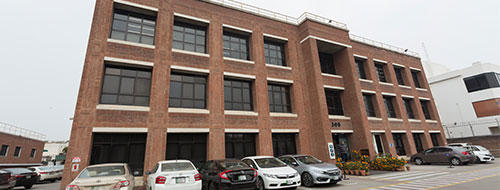Water
Does Nestlé contribute to water scarcity in Pakistan?
No. According to the Food and Agriculture Organization, out of the total available usable water in Pakistan, about 90% is used for agriculture (including domestic use in rural areas), 8% is used by municipality for urban areas and 2% for industrial usage. The bottled water and beverage sector uses approximately 0.001% of total water usage – spread amongst the approximately 100 bottled water brands present in Pakistan.
The figure for bottled water usage in Pakistan is still much lower than many developing economies and almost insignificant when compared with more developed markets around the world.
How does Nestlé help in terms of water conservation in Pakistan?
Water resource management has been a key focus of our Creating Shared Value, also called CSV, strategy. Pakistan needs to manage its resources efficiently to reduce water waste. Currently, more than 90% of the water is consumed in agriculture, with 50% being wasted due to poor irrigation and infrastructure. Actions need to be taken to avoid a potential crisis. We realize that in order to help tackle water stress, we must work beyond our factory gates and take collective action, with other partners like the government, communities, farmers, civil society and academia.
What is the “Caring for Water – Pakistan” initiative?
Caring for Water (C4W)- Pakistan is an excellent example of the collective action approach. Launched in 2017, C4W-Pakistan is a blueprint for bringing different stakeholders together to discuss how we can work to conserve water resources. Since water is a shared resource, it requires collective action to address the country’s water challenges. We support a collaborative approach in order to encourage more partners to join us and invite new ideas whether they are related to agriculture, technology, quality of water or protecting watersheds.
What areas do you target under the C4W-Pakistan initiative?
The initiative mainly covers three pillars i.e., Factories, Communities and Agriculture.
What is the Alliance for Water Stewardship? How does it help to save water for companies like Nestlé?
The Alliance for Water Stewardship, or AWS, is an international standard, which guides companies and organizations on how to improve their water efficiency - not just onsite, but also offsite.
AWS certification process requires the alignment of all local stakeholders, in and outside of the factory. Working with WWF-Pakistan and AWS, Nestlé Pakistan has certified all four of its sites for the AWS Standard.
How does Nestlé Pakistan offer help to the community in this regard?
We have installed 6 safe and clean drinking water facilities around the areas of our operations. These facilities provide safe and clean drinking water to more than 60,000 people every day, free of cost.
How does Nestlé Pakistan help to reduce water wastage in the agricultural sector?
We have partnered with the Punjab Agriculture Department and Pakistan Agricultural Research Council to encourage local farmers to take up drip irrigation. By the end of 2020, along with our partners we helped install drip irrigation on 152 acres with water savings up to 428 million liters. We are also exploring other high-efficiency irrigation methods like different types of furrow irrigation and sprinklers, based on the farmers’ needs.
In addition, Nestlé Pakistan developed smart soil sensors which we are now scaling up with the help of our partners. These sensors also help save water.
What is Nestlé’s water sense project? How do these sensors work?
Nestlé Pakistan has developed smart soil moisture sensors, which we are now scaling up in partnership with Lahore University of Management Sciences (LUMS).
The sensors read the moisture level of the soil and send regular data updates to a cloud from where the farmer receives information on their mobile phones about which areas of field to irrigate. This helps save water and increase productivity by reducing the chance of under- or over-irrigation.
How is Nestlé creating awareness about water conservation among its employees and public?
Nestlé Pakistan creates awareness on water conservation externally and internally.
We observe World Water Day in March and World Water Week in August every year, holding seminars or workshops to create awareness around the issue.
We also create awareness through various digital campaigns on internal communication channels and external forums like Facebook, Twitter etc. Also World Water Day is extensively celebrated across Nestlé Pakistan as a calendar event with different activities organized for knowledge building of our employees.
Our water experts create awareness among our communities on water conservation by organizing training sessions in neighboring schools and technical training institutions.
Are Environmental Sustainability goals of Nestlé Pakistan in liaison with UN Sustainable Development Goals?
Yes. We shape sustainable consumption and steward resources for future generations. All our Environmental Sustainability Projects and goals are in line with UN Sustainable Development Goals.
Can I voluntarily work with Nestlé for its Care for Water initiative?
Yes. You may contact our Corporate Affairs Department for any queries.
What do you think about the Bottled Life documentary?
Bottled Life is a 2012 film about our bottled water business. It is ideological, one-sided and factually incorrect.
For example, it suggests that Nestlé is taking groundwater from Pakistani farmers in the Punjab.
In 2012 we only operated two out of around 680,000 wells in the Punjab, both of which the government regularly monitored. And in the village where our factory is, we’d built two water filtration plants that provided free water to 10,000 people, while a third was being built.
Read our former Chairman’s full response to Bottled Life (pdf, 36Kb).Water is essential for life, and water scarcity is a growing problem. At Nestlé we take our responsibilities seriously. This is why we work to reduce the amount of water we use, and to reuse it, wherever possible.
By working with other users in the water basins around our facilities, we can help conserve this precious resource, and ensure the long-term health of the communities where we operate.
Why are some people opposed to Nestlé bottling water?
Some people are worried about the impact bottled water has on water availability, on people and the environment. We are too.
That’s why, wherever we bottle water, we monitor how much we use to ensure there is no negative impact on local watersheds and aquifers. Moreover, we work closely with local communities to ensure that people’s access to water is unaffected.
Remember, bottled water is never wasted. People drink it. It also takes less water, less plastic and less energy to manufacture than most other bottled beverages.
How much do you pay for the water you bottle?
We pay what the local authorities ask us.
We think that all water users (from food companies, to golf courses and other industries), should be treated fairly, with any fees that are paid used to manage water resources more sustainably.
How do you manage the impact of water bottling on the environment?
By ensuring that all the water we use is replenished naturally. To minimize our impact on the environment, we’re investing in new technologies at our water bottling factories.
For example, our facility in Buxton, UK uses 100% renewable energy. Our factory in Henniez, Switzerland uses agricultural biogas plant to help meet its power needs.
Caring for water forms part of Nestlé’s wider ambition to strive for zero environmental impact in our operations. We’re always exploring new ways to reduce and, where possible, reuse water.
We also work to make water freely available to people living near our water factories.
Why does Nestlé bottle and sell water?
Bottled water is a healthy, zero-calorie beverage that people can drink on the go. More and more people are choosing to buy bottled water, and we try to meet their needs with our brands
Testing bottled water for microplastics
Microplastics are small plastic pieces less than 5mm long that we can find everywhere – in the air we breathe, in the food we eat and in the water.
At Nestlé, consumer safety is our top priority, and we have tested our products for micro-plastics since 2015 using state-of-the-art devices and techniques.
So far, our testing has not detected micro-plastics beyond trace level in our food and beverages.
We welcome further research on the possible effects of micro-plastic consumption on human health, and are happy to offer our expertise to improve understanding of this issue.
What is Nestlé Pakistan's Progress on Alliance for Water Stewardship?
Nestlé Pakistan is proud to be the only company in Pakistan to have all of its sites certified for the AWS Standard.

